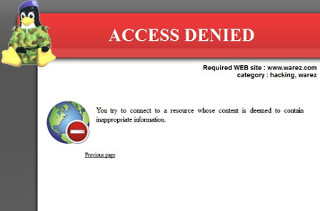Securing the consultation network
ALCASAR integrates a firewall and a web antivirus in order to protect network consultation equipment from direct external threats. Moreover a specific module has been created in order to protect authenticated users from internal pirate attempts trying to spoof their sessions.
Security updates of consultation equipment (antivirus and patches) are possible and can be automated through declared URL which can be directly reached with no prior authentication (trusted sites).
The portal
The security of the portal has been worked out like a bastion in order to resist to diferent kinds of threat :
- Using and securing of a recent and minimalist operating system (Mageia Linux) ;
- Protection of the portal against internal attacks (hardening and anti-bypass) ;
- Free softwares which constitute ALCASAR are known as hardened and secured ;
- For accesses to the graphical management console : encryption of all frames authentication and accounting separation between backup functions users management functions and administration functions (with administration profiles).
Users
To protect users ALCASAR includes two filter mechanisms :
- The first one forbids accesses to web sites that the content could be reprehensible. This mechanism is totally tunable (enable, disable, add or remove sites, etc.) ;
- The second one forbids other traffic than the WEB in order to activate only the require one (https, ftp flaw, multimedia flaw, etc.).
These two optional mechanisms have been firstly developed for organisms welcoming young people.

